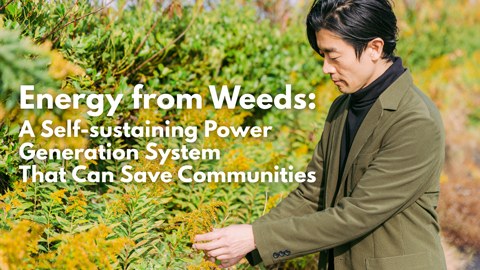In response to Russia’s egregious aggression against Ukraine, Prime Minister KISHIDA Fumio condemned the act in the strongest terms, declaring that causing harm to civilians is a clear violation of international law. In Japan, there is a growing network of support for Ukrainians who have been forced to flee their homes, and universities have risen to stand with Ukraine and have accepted students from the country. Here is one such example.
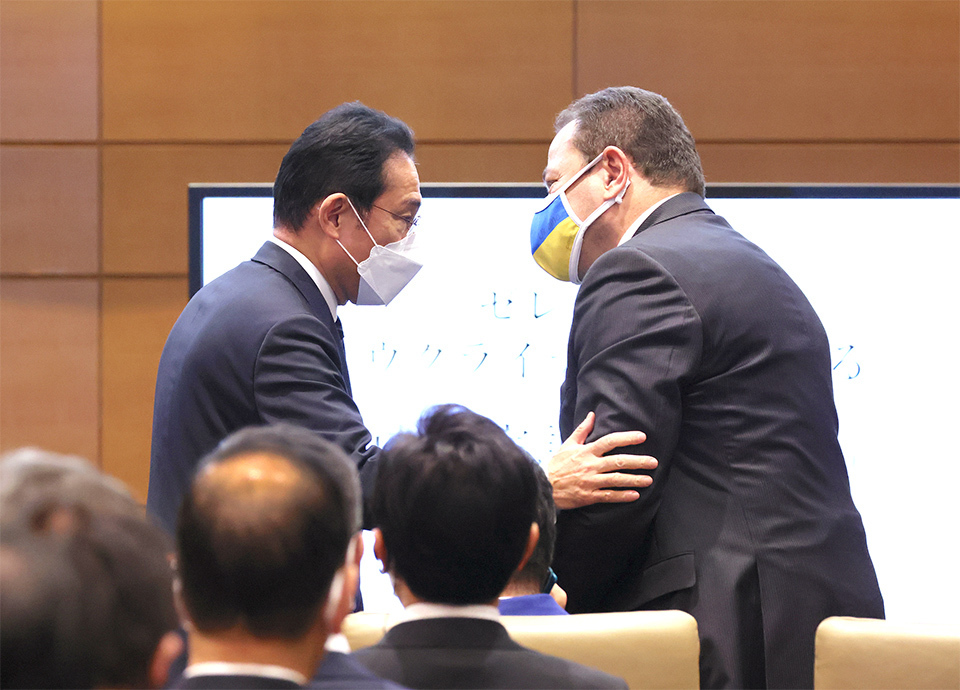
Prime Minister KISHIDA Fumio met with Sergiy Korsunsky, Ambassador Extraordinary and Plenipotentiary of Ukraine to Japan (right), on March 23, the day that President Volodymyr Zelenskyy delivered a virtual address to the Japanese Diet.
“Japan stands with the people of Ukraine in this time of crisis.” The Government of Japan began working closely with global society soon after the February 24 Russian invasion of Ukraine, adopting cumulative measures that include financial sanctions targeting Russian banks, restrictions on imports and exports, revocation of Russia’s “most-favored-nation” status, and freezing the assets of persons related to the government of Russia including President Vladimir Putin and Russian business oligarchs. Meanwhile, Prime Minister Kishida has held summit telephone talks with Ukrainian President Volodymyr Zelenskyy on several occasions, offering food and medical supplies, as well as defensive equipment from the Japan Self Defense Force including masks and suits to protect against chemical weapons. Japan has also pledged to double financial support for Ukraine to 600 million dollars. As the global community unites and takes unprecedented action in support of Ukraine, Japan has revised its own policy guidelines on transferring defense equipment following requests from the Ukrainian government.
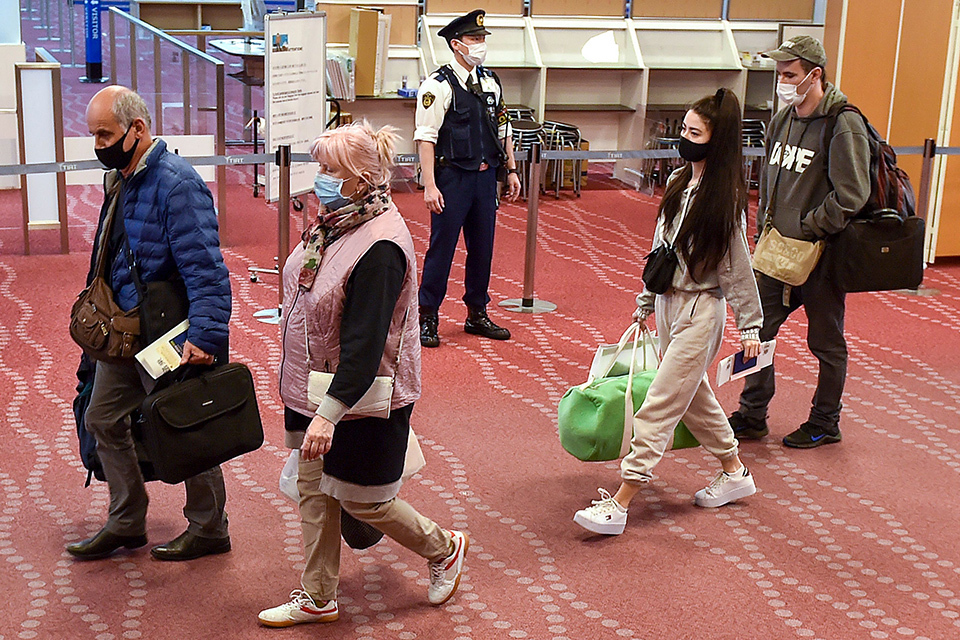
On April 5, Ukrainian evacuees arrived in Japan on a chartered government jet. An increasing number of local governments and private businesses are supporting them with regard to housing, employment, education, and daily needs. AFP=JIJI
Japan is also accepting an increasing number of Ukrainian evacuees. Twenty Ukrainian citizens were transported to Japan on a governmental aircraft on April 5, and more than one thousand Ukrainians have arrived in Japan. This unprecedented humanitarian crisis has prompted a government-wide response, and Ukrainians who do not have relatives or acquaintances in Japan are now accepted to enter for 90 days, with the option of changing their status to “Designated Activities (one-year work permitted)” if they wish to reside in the country.
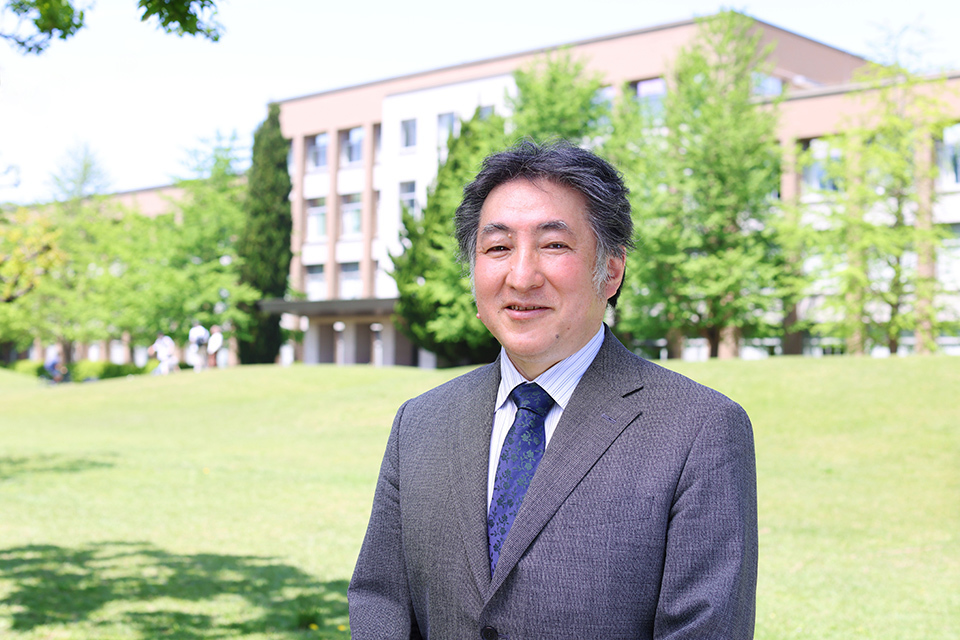
ICU plans to maintain a peaceful education environment for Ukrainian students. “The world’s institutions of higher education are linked in solidarity, no matter where the student undertakes his or her studies. The important thing is that we help each other to nurture the next generation,” says IWAKIRI Shoichiro, president of ICU.
Communities and private businesses have stepped up their efforts to support evacuees with housing and employment, and institutions of higher education are accepting students who have been deprived of their chance to learn. International Christian University (ICU) is one such institution. ICU released a statement by its president almost immediately after Russia launched its invasion of Ukraine, strongly protesting the act, and moved quickly to accommodate Ukrainian students. “Education and academia cannot be secured without peace. Our perception was that we need to respond to a situation that threatens that peace,” said IWAKIRI Shoichiro, the university’s president.
Other universities accept Ukrainian evacuees as well, but the advantages of ICU are its provision of on-campus housing in its dormitories, as well as bilingualism, having both Japanese and English as its official languages. Above all, the university has the benefit of past experience in giving young refugees the chance to pursue higher education, as it has accepted Syrian refugees through cooperation with private organizations as the first Education Pathways case in Japan. This project follows the vision of the UNHCR, which recommends the provision of higher education opportunities for refugees. For example, there is a coordinator on ICU’s campus to establish support teams for students in order to help them to prioritize their academic and daily life in a different culture.
There is a growing movement among institutions of higher education to foster environments that will provide as many students as possible with the opportunity to continue their education after being forced to flee their own countries. Universities actively exchange information, and ICU plays a central role and shares its experience. “The key is to provide educational opportunities to those who have been deprived of them,” asserts President Iwakiri.
In late May, five evacuee students from Ukraine began to study at ICU as auditors. In June, the university’s first Syrian refugee students who had begun their studies in 2018, will graduate. Iwakiri stated, “Here in Japan, we hope that these students will regain the right to live with human dignity. As for ourselves, we hope to be humane and empathetic in accepting them into our midst.”
President Iwakiri is not alone in cherishing such hopes. Russia’s violation of international law is utterly unacceptable and all of us in the public and private sectors, along with academia stand firm with Ukraine and its people in our support.
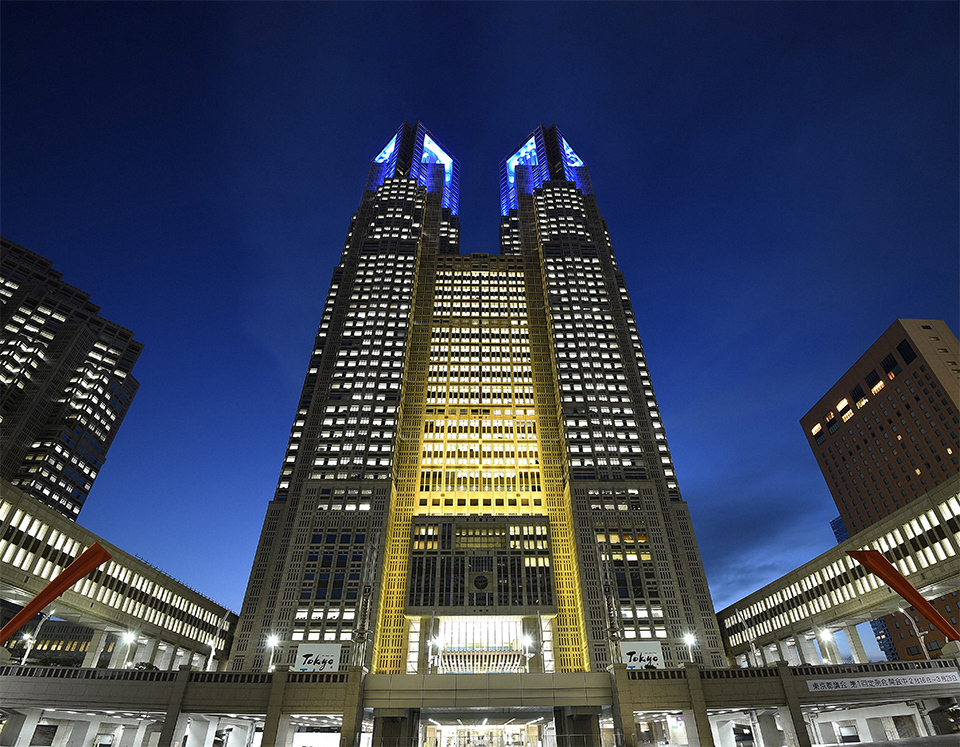
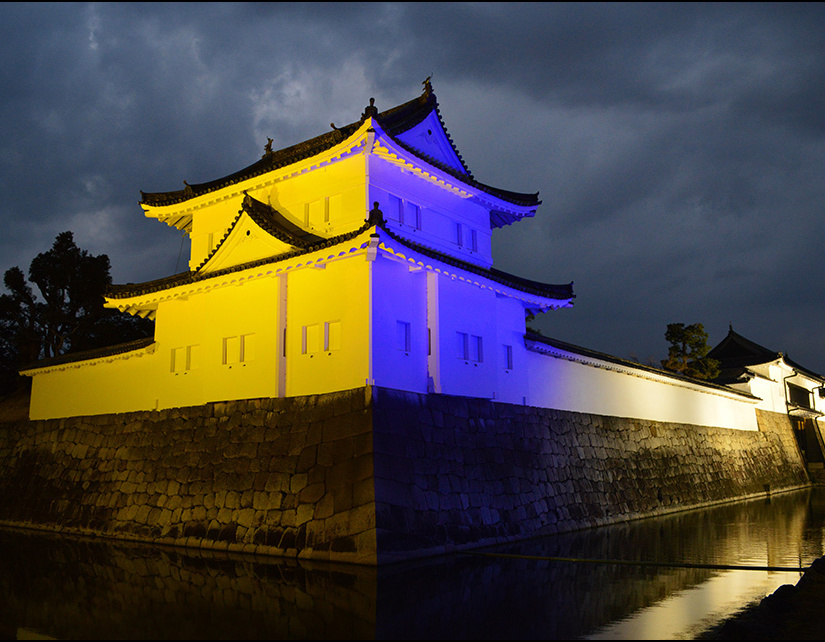
Blue and yellow, the colors of the Ukrainian national flag, lighting up buildings all over Japan. Tokyo Metropolitan Government Building (left) and Nijo Castle in Kyoto, a sister city of Mariupol, in Ukraine, show their solidarity with the country. MAINICHI / AFLO (LEFT), IMAGEMART (RIGHT)
Blue and yellow, the colors of the Ukrainian national flag, lighting up buildings all over Japan. Tokyo Metropolitan Government Building (top) and Nijo Castle in Kyoto, a sister city of Mariupol, in Ukraine, show their solidarity with the country. MAINICHI / AFLO (TOP), IMAGEMART (BOTTOM)
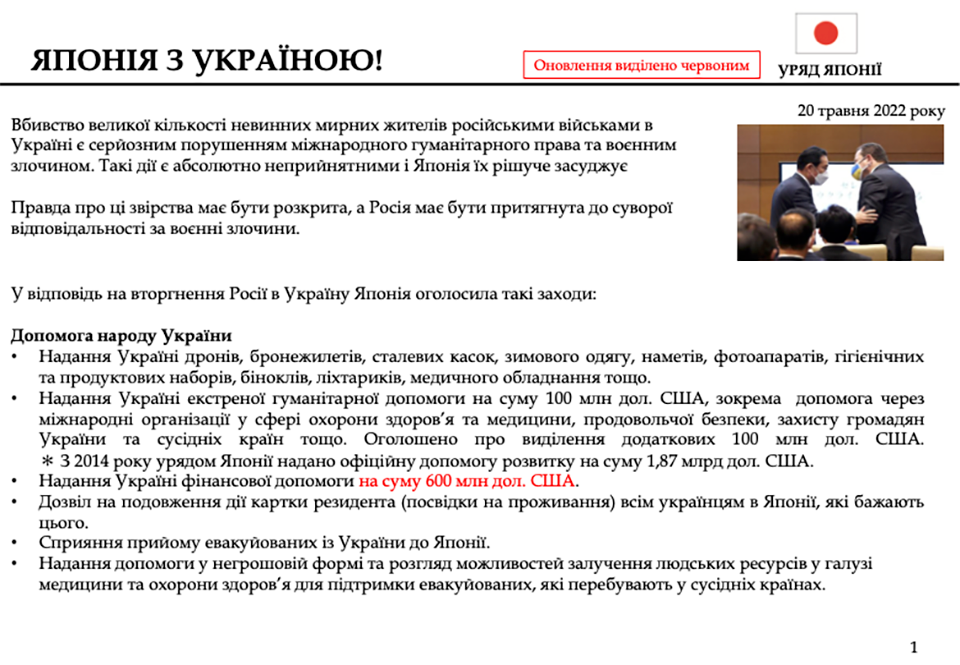
Following Russian aggression against Ukraine, Japan has made the swift dissemination of information a priority, detailing its response in nine languages, including Ukrainian (pictured), on the official website of the Prime Minister’s Office.
Response following Russia's aggression against Ukraine (Prime Minister's Office of Japan)
*The data in this article is up to date as of May 21, 2022.




























